Young pupils saw a baby bee hatching from an egg and tasted fresh honey straight from the hive during a special beekeeping lesson.
A composite class of P1-4s, at Dairsie Primary School, wore protective beekeeping outfits to get a closer look at the bees living in a hive on school grounds.
The class rent the hive from Webster Honey as part of an environment project, in which they have been studying the ecosystem of bees.
Beekeeper Meik Molitor visits the school weekly to help the children care for the bees, with Dairsie one of only six schools in Scotland to have a beehive from the company.
After their first lesson, teacher Ruth Selbie said: “The children loved it. They were made up to have their beekeeping suits, and seeing the bee hatching was the highlight.
“They got to see inside the combs – some of the compartments have honey and some of them are full of eggs.
“The eggs are only about the size of a pinky nail. Meik had lifted a grate out and was talking about it and as he held it up a bee hatched out of one of the eggs.”
Some of the braver children amongst the group held the slides of honeycomb, which can have around 100 bees living on them.
And they learned how to spot the hive’s queen bee, who is around two-years-old, through her distinctive marking.
The pupils scraped some honey out of the hive and took it back to their classroom to eat.
Ruth said: “One of the girls said she didn’t like honey but she tasted it anyway and said it was really nice.
“She said it was sweeter than other honey, maybe because it was so fresh.”
The hive is located in the school’s community garden. The school had it delivered around two years ago, but the lessons were delayed due to the pandemic.
During that time Meik has cared for the bees and says they have thrived in their surroundings due to ‘nice gardens’ and lots of rapeseed in the fields nearby.
Meik said: “The children are very interested. Every time I turn up they say ‘here’s the bee man’ and they watch me from the classroom.
“Now it’s their turn to get involved and they are amazed. They’ve already learned a lot about the importance of bees.
“When I first turned up I asked them what would happen if we had no bees and they said there would be no honey, but now they understand a bit more about how they are good for our lives too.”
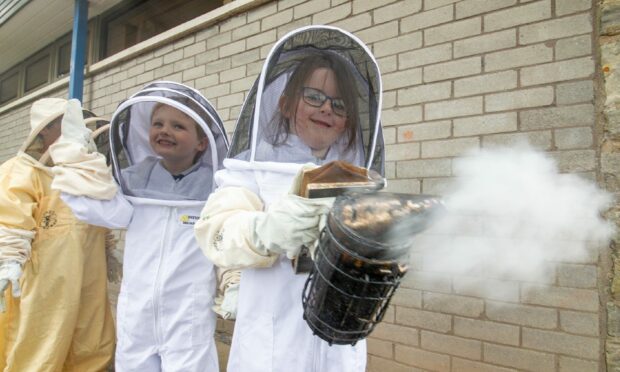
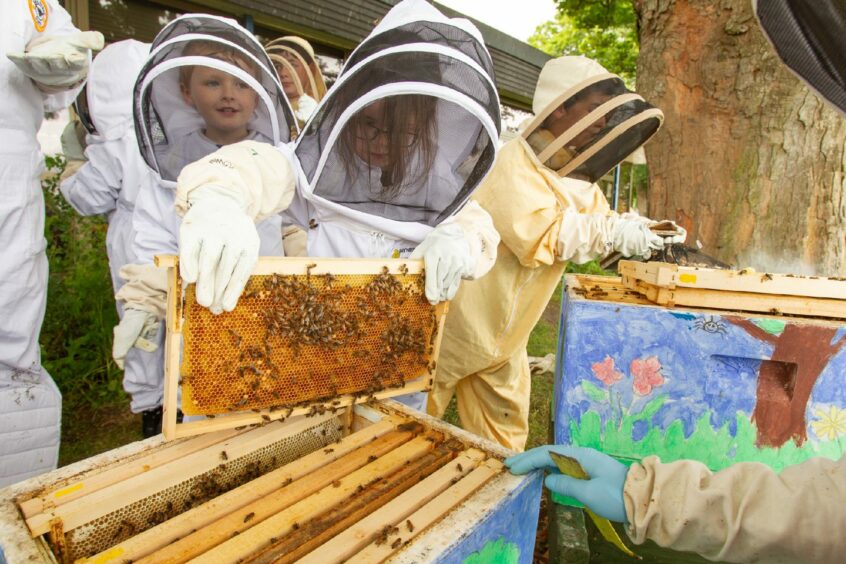
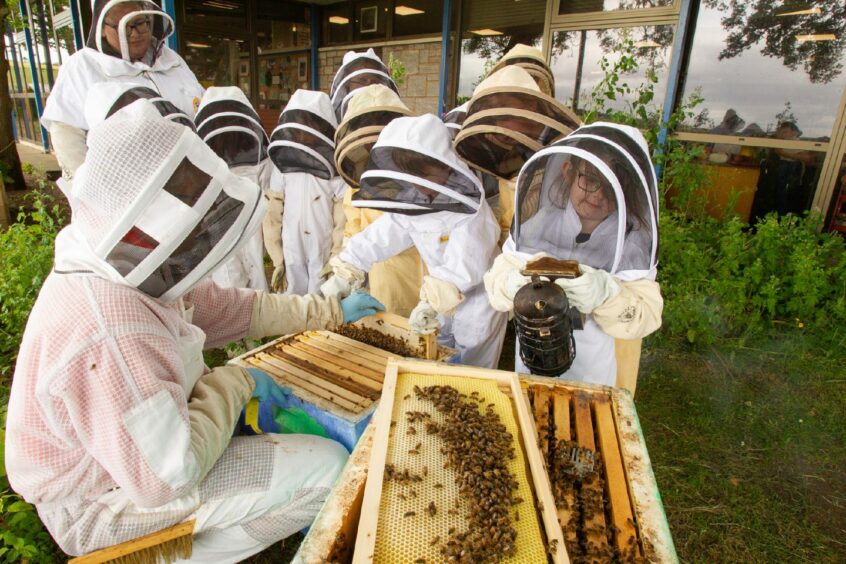
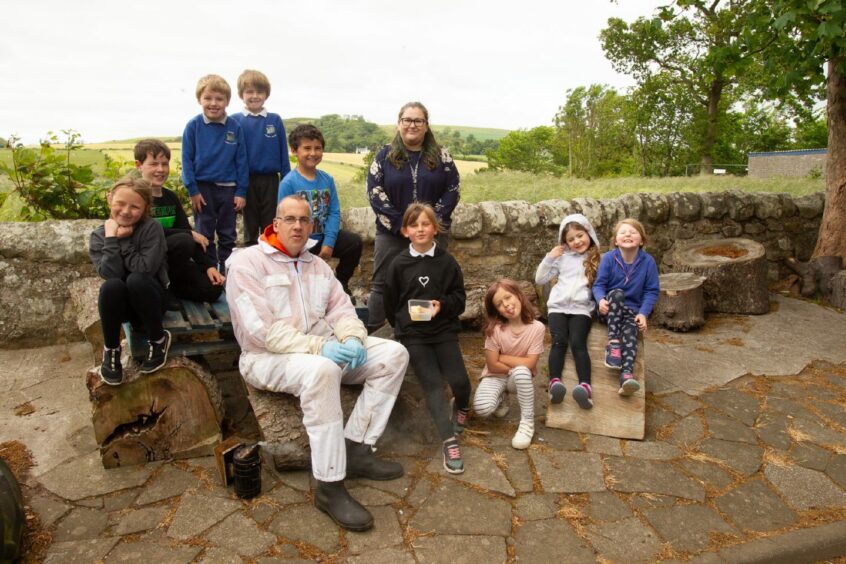





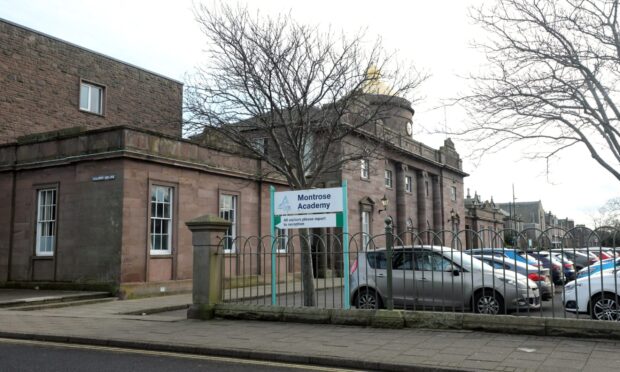
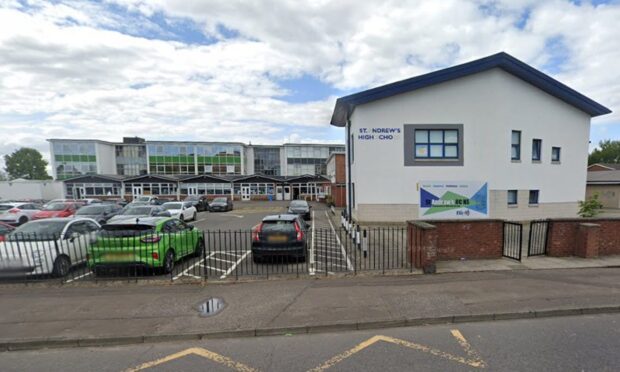
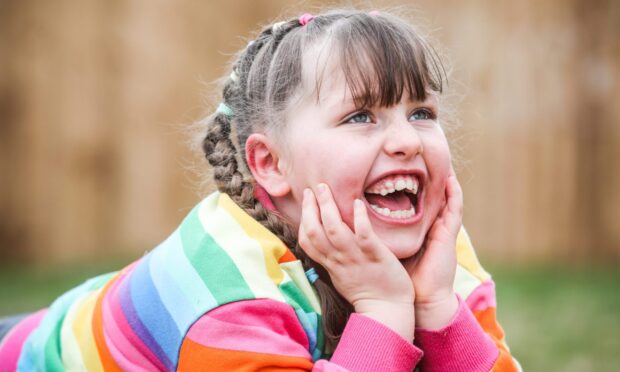

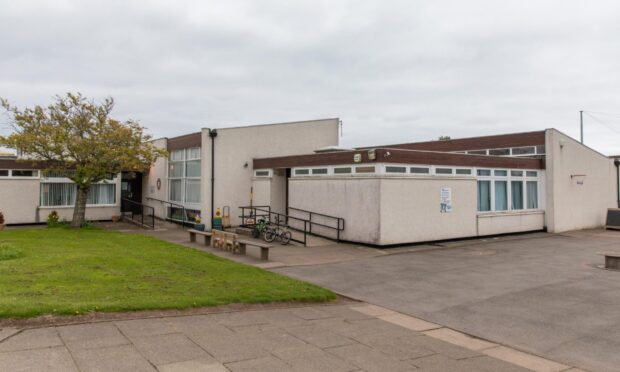
Conversation